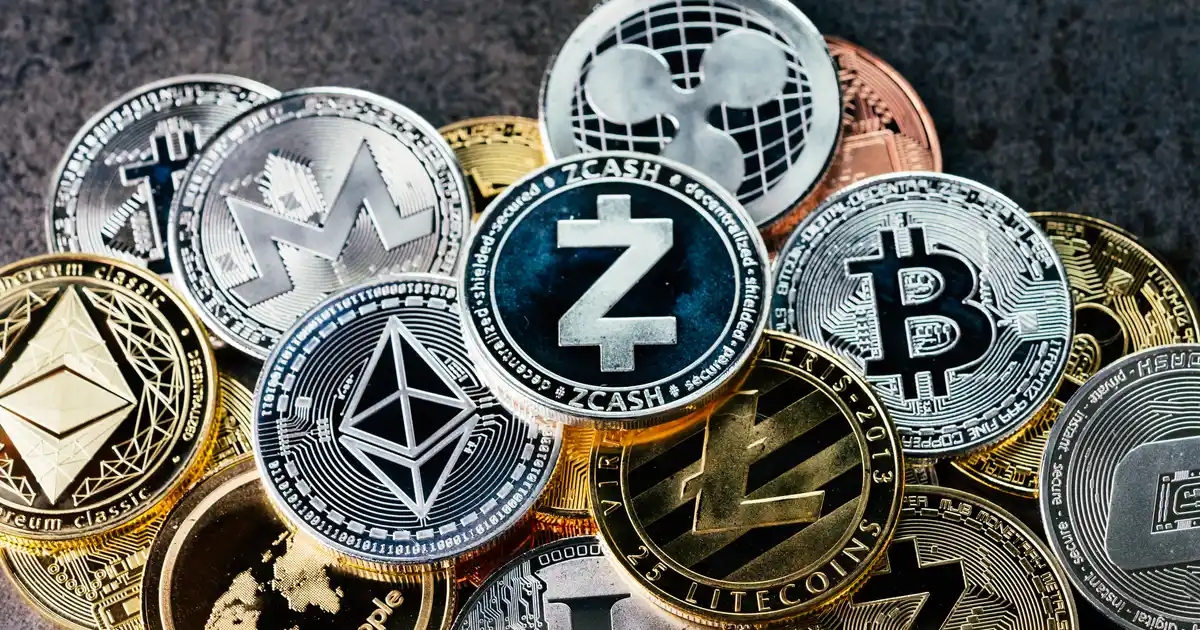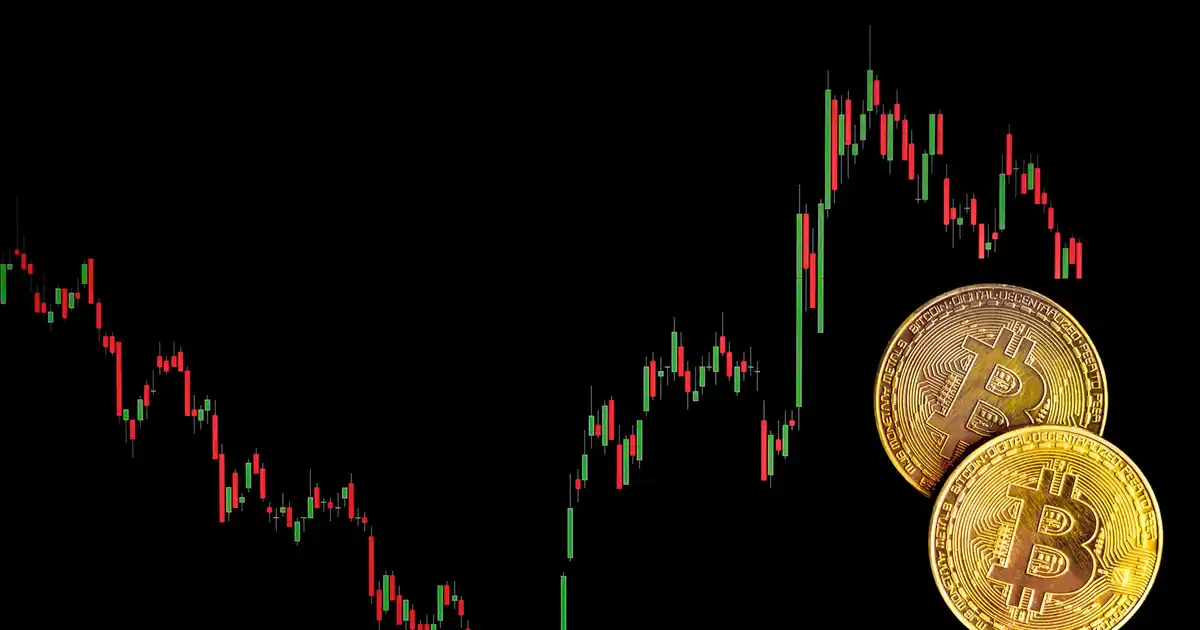- The prices of most cryptocurrencies have been in a free fall lately, causing some people to think the bubble has burst.
- Crypto companies are also laying off thousands of workers, as the money quickly dries up.
- Can the cryptocurrency industry bounce back, like it has before? Only time will tell.
To be honest, it’s hard to write about Bitcoin at all these days. By the time a single article is researched, written, edited, and published, there’s a good chance some parts will have changed dramatically in the previous 24 or 48 hours. The roller coaster world of cryptocurrencies just moves so damn fast. It can be hard to keep up, even for those with a vested interest in the market.
It was only about six months ago, in November 2021, that the price of Bitcoin hit an all-time high of just under $70,000 USD per coin. A year before that, the price was about $15,000. With explosive growth rates, plenty of early investors doubled or tripled their money (or more). Yes, the cryptocurrency hype was an all-time high. Online exchanges were popping up everywhere, encouraging you to buy Bitcoin, Ethereum, Litecoin, or even Dogecoin. Matt Damon appeared in Super Bowl ads for Crypto.com, telling you that “fortune favors the brave.”
Frankly, you’d need to have been living under a rock to not have crypto-something shoved in your face.
The Crypto Recession
The price of Bitcoin and other cryptocurrencies has always been volatile. It’s dropped dramatically before, only to rise back up. However, the tail end of 2021 and most of 2022 (so far) has seen the prices of most cryptocurrency in a free fall. Currently, the price of Bitcoin is around $20,000 per coin and optimism is fading fast. So what exactly happened?
Like any relatively new product or technology, the investing market had a lot to learn about cryptocurrency. Unfortunately, plenty of people sunk millions of dollars into these digital currencies without knowing all the facts. Yes, some people bought in early, sold near the peaks, and made millions. Others, unfortunately, bought into the hype. They were told that Bitcoin would easily reach $100,000 per coin (or that Dogecoin would get to $1.00 a coin), and all their crypto holdings would go “TO THE MOOON!!11!”
Now plenty of people are left holding massive losses, unsure of what to do next. Will the prices bounce back eventually, letting them break even? Should they cut their losses and sell now, while there’s still some value left? Or will the free fall of crypto prices continue, until every remaining investor is left holding the bag?
 Shutterstock
ShutterstockSecurity Concerns
Cryptocurrency is sort of like the Wild West of online investing. There aren’t a lot of rules and regulations, so the whole scene is ripe for scam artists. A recent study from the Federal Trade Commission (FTC) estimates that Americans alone have lost more than $1 billion in cryptocurrency-related schemes since the start of 2021.
Some of them bought into promising “investment opportunities,” only to have their money vanish into the online ether. Others had legitimate crypto holdings stolen from them in elaborate phishing or trading scams. Close to $200 million was lost in “romance scams,” where scammers use dating sites to dupe love-struck matches into sending them cryptocurrency for some fake emergency expense.
“Crypto has several features that are attractive to scammers,” the FTC report stated. “There’s no bank or other centralized authority to flag suspicious transactions and attempt to stop fraud before it happens. Crypto transfers can’t be reversed – once the money’s gone, there’s no getting it back. And most people are still unfamiliar with how crypto works.”
 Shutterstock
ShutterstockPrivacy Concerns
One of the biggest selling features of using cryptocurrency was supposed to be privacy. It was entirely unregulated. It was decentralized. You could spend the money however you wanted, without the government asking questions. For privacy enthusiasts, Bitcoin was a dream come true. Except it wasn’t really any of those things.
A recent study focused on the privacy, decentralization, and anonymity of Bitcoin. The results weren’t reassuring, as it found the ability to “de-anonymize” Bitcoin users in some cases. They even suggested that law enforcement agencies could (and probably do) use crypto transactions as part of their criminal surveillance cases. The study also pokes holes in the notion that cryptocurrency is entirely decentralized, saying the whole industry is more like a small system propped up by a small minority of major players.
 Shutterstock
ShutterstockBitcoin Regulation
There are growing cries for some sort of cryptocurrency regulation, especially in the wake of millions of users losing massive amounts of money recently. Now governments are trying to figure out how to tackle this issue. And let’s be honest, a bunch of 60+ politicians are not at the forefront of cutting edge web3 blockchain technology. So it’s even harder than it sounds.
The current debate boils down to this: is crypto a security, like a stock that can be bought and sold? Or is it a commodity, something that can interact with futures agreements? Is it a currency, equivalent to the United States dollar? There is currently a bipartisan bill being proposed called the Responsible Financial Innovation Act. Among other things, it would provide the first real regulatory rules for cryptocurrency in America.
 Shutterstock
ShutterstockOutspoken Critics Are Bursting The Bubble
For every Elon Musk tweet that urges you to invest in Dogecoin or use your Bitcoin to buy a Tesla, there are other prominent figures throwing water on the blazing Bitcoin hype. Plenty of prominent financial gurus and ultra-wealthy investors are steering clear of crypto, and encouraging others to stay cautious.
Famed investor Warren Buffet scoffed at the idea of investing in Bitcoin. The CEO of Berkshire Hathaway famously quipped that he wouldn’t buy all the Bitcoin in the world for $25, calling it nothing more than “magic” and saying it “doesn’t multiply or produce anything.”
Nassim Taleb, noted Wall Street trader and former hedge fund manager, also cooled his stance on Bitcoin. After originally backing the technology, he sold all his Bitcoin in 2021 and declared it too volatile. Bill Gates also made headlines lately for saying cryptocurrencies and NFTs are based on the “greater fool theory.” That is, something is only valuable if you can keep convincing the next guy to pay more for it.
 Shutterstock
ShutterstockShady Business Practices
Proponents of Bitcoin will tell you that cryptocurrency is about freedom and privacy and all those things. Except, when the going gets tough, some major crypto exchanges simply close their doors. Granted, it’s usually only a temporary closure. But still, it’s not exactly the total control and freedom that Bitcoin supporters yammer on about.
In June 2022, crypto network Celsius simply halted all trading, including withdrawals, as the prices of most major coins plummeted. The site claims to have 1.7 million users, none of whom could do anything but watch their portfolios shrink down by the minute. The shady language in their official statement and Terms of Use agreement made some people wonder if they would ever be able to get their money back.
A couple weeks later, Coinflex basically did the same thing as Celsius. Without a lot of government oversight or regulations, these crypto exchanges can almost do whatever they want. That should be a huge red flag to anyone wanting to send them money.
 Shutterstock
ShutterstockStablecoins Aren’t So Stable
Cryptocurrency is incredibly volatile. That much should be obvious by now. At some point, someone had the brilliant idea of “what is crypto, but more stable?” And thus, stablecoins were born. In short, a stablecoin is a cryptocurrency that has its price tied to a real-life asset — often the U.S. dollar or the price of gold, for example. The claim is that they are algorithm-priced to never experience the dizzying peaks and valleys that we’ve seen with Bitcoin and other crypto coins.
Except they don’t really work.
TerraUSD, one of the most popular stablecoins, was advertised by crypto exchange Binance as being “safe”, “stable,” and “fiat-backed.” For most of 2022, the price hovered around $1.00 USD per coin (as intended). However, it bottomed out in mid-May and now sits at $0.01 per coin. Yes, it lost 99% of its value in a matter of days.
More than 2,000 investors have launched a lawsuit against Binance over the drop, claiming false advertising (among other things). TerraUSD’s sister coin, Luna, also completely tanked.
 Shutterstock
ShutterstockCrypto Companies Laying Off Thousands of Workers
If the actual prices of cryptocurrencies weren’t concerning enough, the underlying industry is also suffering heavy losses. Many major Bitcoin exchanges are suddenly scaling back by suspending hiring or laying off current workers. Some are even rescinding job offers they previously extended.
Crypto lending company BlockFi announced they were laying off 20% of their staff, about 170 workers. The CEO of Crypto.com made a similar announcement, cutting 260 more jobs. A company called Gemini also recently cut 10% of their staff. Coinbase, one of the biggest websites to buy and sell cryptocurrency, laid off more than 1,100 employees.
The tides have turned dramatically, considering some of these companies have been buying up naming rights to major sports stadiums and paying for those expensive Super Bowl commercials — all in the past 12 months. Now things aren’t looking so optimistic, especially for those who just lost their jobs.
 Shutterstock
ShutterstockWhat Happens Next?
Honestly, who knows? The price of Bitcoin has risen slowly in the last five days, but still sits just below $21,000 per coin. That’s a long ways away from the $68,000 peak price. There are plenty of optimistic crypto supporters out there encouraging people to “buy the dip,” assuming that prices will eventually rise again. And it’s totally possible that they will.
It’s also possible, of course, that prices never go back up to where they were. The days of double, tripling, or quadrupling your money (or more) in a matter of weeks might be over. There’s really no way to tell.
If people lose interest or become afraid to buy crypto, the demand goes down. That, in turn, usually drives the price down too. Then again, maybe this dip in price is the perfect spot that many on-the-fence Bitcoin speculators have been waiting for.
 Shutterstock
ShutterstockThe Bottom Line
Every cryptocurrency is a risky gamble. The prices are just too volatile to consider them a sound investment. Prices are pretty low right now, which could be a great time to buy into the market. On the other hand, prices could just as easily keep dropping even further. It simply can’t be predicted, no matter how much due diligence research you try to do.
If you’re interested in buying Bitcoin (or other coins), heed this advice: don’t invest more than you’re willing to lose. Your cryptocurrency purchases could still result in gains. However, they could also become completely worthless too.
 Shutterstock
Shutterstock